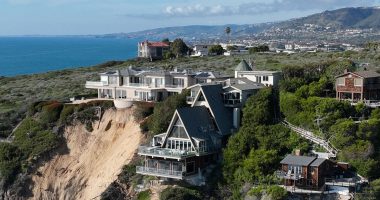SPACE is the final frontier – but where exactly is ‘space’?
A common definition of space is known as the ‘Karman Line’ – which is what both billionaire space addicts Jeff Bezos and Sir Richard Branson are reaching for.
What is the Karman line?
The Karman Line is an imaginary boundary 100km (62miles) above mean sea level, explains the National Environmental Satellite Data and Information Service in the US.
In theory, once this 100km line is crossed, the atmosphere becomes too thin to provide enough lift for conventional aircraft to maintain flight.
At this altitude, a conventional plane would need to reach orbital velocity or risk falling plunging back to Earth.
Where is the edge of space?
Most people generally agree that space begins when Earth’s atmosphere ends – around 100km (62 miles) above mean sea level.
But where exactly that is depends on who and which organisation you ask.
The world governing body for aeronautic and astronautic records, the Fédération Aéronautique Internationale (FAI), and many other organisations use the Karman Line as a way of determining when space flight has been achieved.
However, the US military and NASA define space differently.
According to them, space starts 12 miles below the Karman Line, at 50 miles above Earth’s surface.
Pilots, mission specialists and civilians who cross this boundary are officially deemed astronauts.
Virgin Galactic’s SpaceShipTwo is expected to travel at least 50 miles high.
The CEO of Jeff Bezos‘s space exploration company Blue Origin, Bob Smith, claimed that Branson would not fly as high as the former Amazon boss.
“We wish him a great and safe flight, but they’re not flying above the Karman line and it’s a very different experience,” Smith said.
In the last crewed test of its SpaceShipTwo space plane, the craft reached 55 miles above sea level, reports Business Insider.











